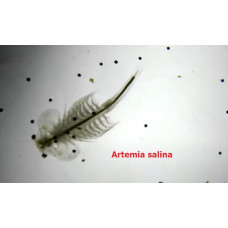Hypotonics are organisms in which the salt concentration of cavitary fluids is lower than in the environment. It is characteristic of almost all marine bony fish and inhabitants of ultragaline water bodies (Artemia salina).
In different groups of fish, the independence of osmotic pressure is expressed and achieved in different ways:
1) in marine bony fish the total amount of salts in the blood is lower than in seawater, the internal pressure is less than the external pressure, i.e. their blood is hypotonic in relation to seawater;
2) freshwater fish have a higher amount of salts in their blood than freshwater fish. The internal pressure is greater than the external pressure, their blood is hypertonic.
Maintaining the salt composition of the blood and pressure at the right level is due to the activity of: the kidneys, the special cells of the walls of the renal tubules (urea release), the gill lobes (ammonia diffusion, chloride release), the skin, the intestines, the liver.
Bony marine fish (with hypotonic blood) in a hypertonic environment constantly lose water - through the skin, gills, with urine, feces. Prevention of dehydration and maintenance of osmotic pressure at the right level (ie below than in seawater) is achieved by the fact that they drink sea water, which is absorbed through the stomach and intestinal walls, and excess salts are excreted by the intestines and gills (eel and sculpins in sea water daily drink 50 - 200 cm3 of water per 1 kg of body weight. When water intake by mouth is discontinued, fish lose 12-14% of their weight and die on the 3rd-4th day).
Hypotonics
Tags: hypotonics

